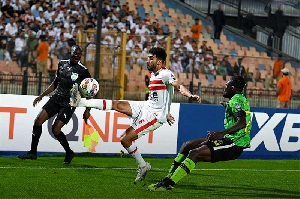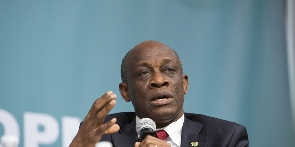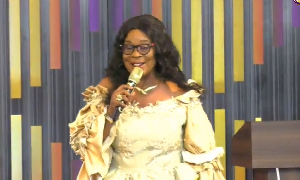- Home - News
- TWI News | TV
- Polls
- Year In Review
- News Archive
- Crime & Punishment
- Politics
- Regional
- Editorial
- Health
- Ghanaians Abroad
- Tabloid
- Africa
- Religion
- Election 2020
- Coronavirus
- News Videos | TV
- Photo Archives
- News Headlines
- Press Release
General News of Tuesday, 2 November 2010
Source: Ghanaian Times
‘Media Practicing Terrorism’
Dr. Wilberforce Sefakor Dzisah, a communications consultant, has expressed worry over the upsurge of irresponsible journalism practice by a section of the Ghanaian media, saying the situation poses a great threat to peace and democracy.
He accused the radio stations, in particular, of practicing what he called as “media terrorism,” and said they had become increasingly irresponsible and continued to act without recourse to ethics.
Dr. Dzisah, who is also a lecturer in Communications at the Ghana institute of journalism, in an interview with the Times newspaper yesterday cited the recent report of alleged highway robbery and mass rape, on the Kintampo-Tamale road, indicating that “the situation is very worrying.” “The media is behaving as if we have no responsibilities and obligations to society which we claim to be safeguarding,” he said, adding that generally known as the “Fourth Estate of the Realm,” the media was behaving as though it was more important and powerful than the other three, (the legislature, judiciary and the executive).
He condemned the practice of radio stations allowing faceless people to speak on air without undertaking any due diligence to verify the credibility of the information broadcast. “We should not allow a minority to try to legitimize media terrorism in Ghana,” he said, and added that such unethical journalism practice, was undermining national security.
He said the threat posed to Ghana’s democracy would not come from armed insurgence but from the media, which was gradually stripping itself of all decency and decorum. He said although the public had become active in exercising their right to freedom of expression, “it is up to the media to keep to their gate-keeping role of ensuring that only what is acceptable comes out.” He said: “We must remember that we are answerable to society and the laws of Ghana”.
Dr. Dzisah called on the National Media Commission and the Ghana Journalists Association to act swiftly to save the situation by “whipping erring media organisations and practitioners into line”.
Failure to do that would make the media useless and unproductive and thereby lose the confidence of the public.










